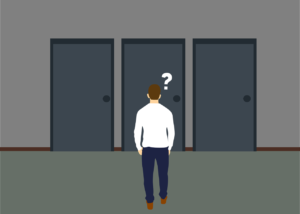
Failure is the fate of most teachers at least some of the time. In their classrooms sit students whom, despite their most heroic efforts, they just can’t reach–like TJ, a boy who traveled from Indiana to attend an eastern boarding school and found his way into my classroom.
Every fall, I struggled to get students to understand the importance of their education: to believe that success is the result of sustained, hard work; that the future of humanity depends on their ability to think well and deeply; that if they wasted the upcoming year in school, they would regret it. And every fall, I failed. I discovered my voice was too weak to rise above the din of their parties, too weak to compete with the mocking laughter they aim at adults, too weak to wake them from their sleep. Although neuroscience assures us that slow myelination of the prefrontal cortex is the problem, I have come truly to believe that too many young people are, also, in fact, asleep.
What I mean is that too many are unconscious—unaware that the choices they make today affect their future, unaware that their behavior this year will have consequences when they are 25 and, especially, when they are 55. For them, reality holds no terror. Smoking or chewing tobacco won’t destroy their lungs or mouth. Booze and drugs won’t destroy their brain. Lying and cheating won’t destroy their soul. And blowing their education won’t destroy their chances for success or happiness. Adult warnings fall like rain upon the roof of their invincible youth and lull them to sleep.
What makes this sleep of the young so difficult to penetrate is that, though they are asleep, they think they are awake, so it is impossible to wake them. It’s like trying to convince a lunatic who believes she is sane that she is really insane.
I have seen this same trait in so many students–soundly asleep but convinced they were awake. Then at some point, they experienced something that scared them, and they realized that they really had been asleep. Those who actually woke up described both the fear that motivated them and the huge effort it took to achieve true wakefulness. TJ was one of these students.
TJ was a wonderful young man who, as a senior, became president of the student body. We enjoyed each other’s company, and he often visited me in my office, always sighing deeply and lying down on my sofa. During his time in high school, this was his favorite position—recumbent. He was one of the most thoroughly asleep students I have known, and he resisted all my attempts to wake him up, to get him to do something with his brain, to get him to exert some leadership as student body president and attack the racism he saw and experienced on campus. He was convinced he was wide awake.
In the summer before his junior year in college, he wrote me a letter. He was working two jobs—Taco Bell during the day and Dial America, a telemarketing firm, at night. Here is some of what he wrote:
“Paying rent, utilities, phone bills, etc. ain’t no joke. I mean, when the rent’s due, it’s due. The landlord doesn’t want to hear anything except your check is written for the correct amount, it’s valid, and it’s in his mailbox already. I have a whole new level of respect for the commitment, responsibility and organization that this takes. . . .
“Both my jobs require little thought and are 90% routine, so I have lots of time to think. Hating these jobs so much has made me realize I can’t spend the next 20 to 30 years of my life working some place or doing something I hate. This realization has changed my view of school. I’ve always looked at education as an impersonal chore or exercise to get the degree or diploma.
“It took me a while to determine what I’d like to do above anything else, but now that I have, I know I have the chance to learn and will actually learn now. Everything that involves school is so much more important and valid now, and I actually am motivated for school starting. I find it hard not to laugh at myself for not having this realization earlier. I mean, I’ll be a junior this fall, and I feel I’m starting all over again.”
It took TJ twelve years of schooling and two in college to wake up. It took the world happening to him—the need to pay for food and shelter, the fear of living a life he might hate—before he understood that education has a purpose, that learning is closely connected to the sort of life he will actually live. He discovered that the escape from a dead-end life runs right through school.
His letter ended with a hopeful sign. When he was president of the student body as a senior in high school, he accomplished little. He wasn’t sufficiently awake to understand the importance of being president. In college, he accepted another position: “I’ve accepted the position of vice president of the multi-cultural council. . . . I’m scared. It’s not because I think I can’t do a good job; it’s more or less because a lot of people will be depending on me. I’ve never felt this way about any job or position I’ve ever been appointed or accepted.”
Perhaps experience is the only successful teacher. Perhaps the awareness needed to recognize opportunity requires emotional jolts of reality, and young people need to hear fear’s wake-up call for themselves in order to become conscious. But experience has taught me that teachers and parents play an essential role. We mustn’t stop sounding the alarm, no matter how many times the kids hit the snooze button. That neural circuitry in the frontal lobes doesn’t get wired in a vacuum; adults influence the process. If I hadn’t spent those years prodding TJ, I doubt that he would have taken the time to write me about his epiphany. Perhaps his letter suggests that I didn’t fail. At least that’s how I chose to read it. Gratification for teachers and parents tends to be very delayed.
Alden Blodget is a mostly retired high school teacher and administrator. He volunteers as a writing teacher at LEAP for Education (Salem, MA). He has written many articles and two books: Learning, Schooling and the Brain: New Research vs. Old Assumptions and Dead Man Talking. This essay is adapted from one of the chapters in the latter book.
Like most of the pictures on TeensParentsTeachers, the picture posted with this article is courtesy of a free download from Pixabay.com.



